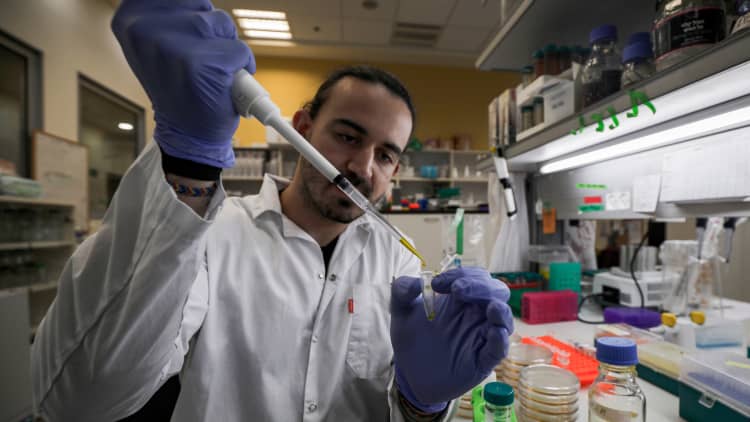Some reports predict that close to half the global population will eventually contract the coronavirus. While aggressive testing to contain the spread of the disease remains a top priority, scientists and researchers believe that an effective treatment can serve as a bridge while experts develop a vaccine.
For now, regulators are heavily leaning toward repurposing existing medications, which will both save time and guarantee a steady supply. The Food and Drug Administration is looking into drugs that are normally used to treat other conditions, such as HIV, malaria, Ebola and rheumatoid arthritis, as possible candidates to treat Covid-19.
It's a process that will prove to be "a very, very difficult business," according to Rena Conti, an associate markets professor at Boston University. "Four out of five drugs fail in developing. And that's true for cancer and for other types of significant unmet needs that we have now. And that exact same failure rate should be expected in developing a treatment for Covid-19."
Other therapeutic treatments such as convalescent plasma therapy, which uses blood from recovered patients to treat those in critical condition, have recently come into the spotlight after the FDA approved its use on March 24. It's a treatment that's been around for over 100 years, most notably to combat other diseases such as the Spanish Flu pandemic of 1918. However, the challenge lies in proving its efficacy and securing enough plasma to treat those who are in need.
Scientists remain hopeful, given the number of treatments and drugs that are under consideration. As of April 19, the FDA revealed that 72 treatments are in active trials and 211 treatments are in the planning stages. "I think it is likely that we will be able to identify a therapy that has some success within a period of several months to maybe a year," said Andrew D. Badley, an infectious disease specialist at the Mayo Clinic.
Watch the video above to learn more about the recent developments in the treatment of Covid-19.


